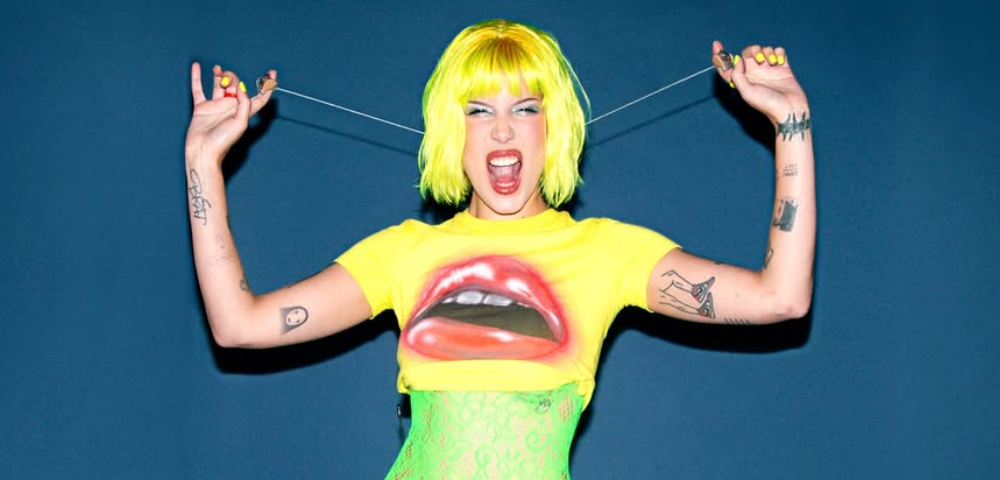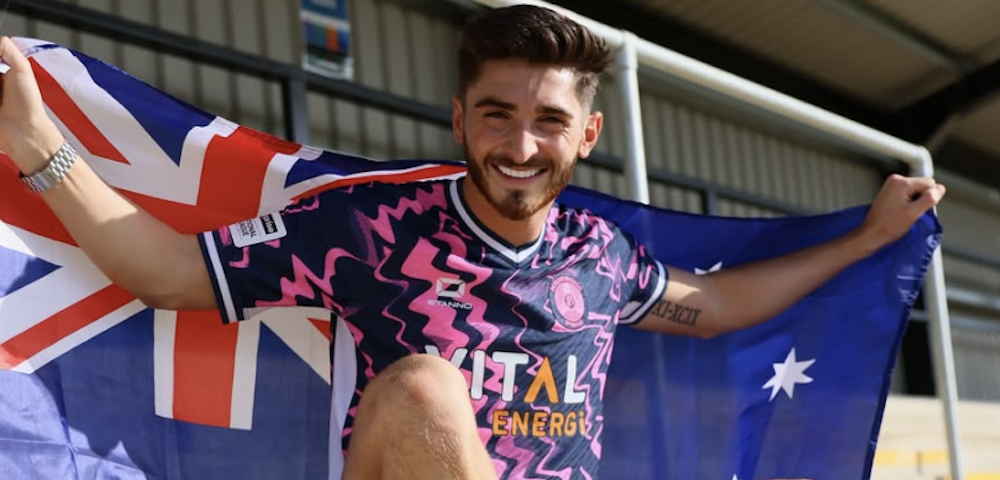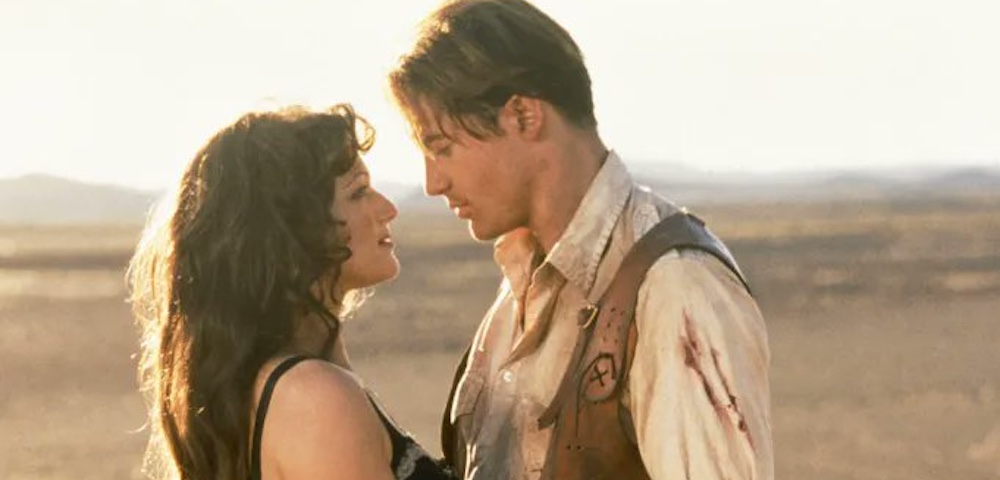
Bruno – is he just a storm in a jockstrap?
CLINTON DYBING
Years ago, I recall a friend being outraged at The Birdcage. Mr and Mrs Ordinary will see that film and think that every gay man is just like that.
While there’s a sad ounce of truth in that statement, what is even sadder is we’re still having similar discussions 13 years later.
There’s been a lot of talk of Brüno already. There’s been a cavalcade of dialogue, criticisms, lawsuit threats and general handflapping going on about the whole thing.
Not that its impact shouldn’t be downplayed: after all, how many times has there been a larger-than-life, publicity-loving gay character (some would say -˜caricature’) in the mainstream spotlight?
Brüno isn’t merely overtly gay -“ he’s his own Mardi Gras. And it’d be perfectly understandable if your everyday homophobe or someone lacking general knowledge of gay people would think on the effeminate and vacuous Bruno as a -˜typical’ one.
But Sacha Baron Cohen doesn’t perpetuate the stereotype; he uses it as a springboard.
Brüno’s an intellectual vacuum who seems, for a while at least, to attract every other bubblehead in town (this is when he’s in LA, of course). He’s determined to become famous. He talks with some daffy PR women about committing to a trendy charity (Darfur? How about Dar-five-¦?). He also films a pilot episode of a gossipy TV show replete with a -˜To Abort or Not Abort?’ segment on celebrity foetuses and an interview with Paula Abdul (being asked about her humanitarian work while sitting on the -˜latest’ thing, human furniture -“ a Mexican tradesman -“ is genius).
The show also has a waggling penis that speaks the host’s name with its eye. Really. He also features on a Springer-like talk show, with his new adopted baby (with the traditional, African name of O.J.) in tow.
Considering his treatment of the child (shown in a series of obviously doctored photos), gay parents, potential gay parents, or anyone pursuing equity for gay people may throw their arms up in frustration. The sequence beforehand, however, is of Brüno interviewing parents of other children he wants for a photoshoot. It’s obvious they’ve been told this is a -˜big’ project: one stage mother (and father) after another relents to everything in the hope to involve their child. Exposure to chemicals? No problem.
Riding in a speeding car without a car seat? You bet. Liposuction? Sure, if my child is ten pounds too heavy.
It’s not exactly an attack on straight parents -“ he doesn’t have to, since they do it themselves. It’s a potent reminder that the ones already parenting are worry enough.
Some of the more successful parts of the film are ones that don’t dwell on sexuality, like his work as an extra on TV. And sometimes when he does play the gay card, they’re either mistimed or just plain misses.
He interviews a -˜gay converter’ and even though it’s amusing, it’s not so insightful. There’s no mention of the most interesting and most potentially laughable thing in the film: how they -˜convert’ gay people. There’s a little talk of God, which you also expect will lead somewhere. But Brüno just asks him if he’s coming onto him.
Another moment involving him and his assistant, Lutz, occurs when they’re locked together in bondage gear. They cross an anti-gay picket line and ask for their help. It makes for a humorous image, but since we’re only given that image, its obvious nothing else happened there. And its obvious contrivance makes it less effective.
A lot has been made of Cohen’s original, darker ending, which included a gay bashing, followed by a gay wedding with a drooling, brain-damaged boyfriend. But it would’ve been completely wrong -“ Brüno may be a sledgehammer of a character, but he never whollops you over the head with a -˜message’.
His point is made simply by letting others look foolish.
To ask whether Brüno is a gay friend or foe is the wrong question. When the film fell flat or failed to deliver, I was more worried about whether or not it was actually funny. Some may be offended because Cohen’s not really gay, thus not allowed to behave that way -“ like in black culture, it’s OK to call each other nigger. What made Daffyd (the only gay in the village) in Little Britain so funny and interesting was that everyone else in the village was OK with it -“ it was only his internalized homophobia that was the problem.
I’ve always been somewhat proud that gay people have that ability to laugh at themselves a little -“ who cares if this character is based on a stereotype? (Though not the fault of gay people, sometimes we need to be reminded that stereotypes don’t come from nowhere.)
By being extremely adept at self-promotion, Cohen may have put the emphasis on gay men who dress like life is one big nightclub. But it’s not to the detriment of our pursuit of equality -“ no film or film character should be.
What is detrimental is being overly sensitive. I suspect that those complaining about the film today will be the same voices raised in objection saying there aren’t enough gay characters in any film tomorrow.
I think that being overly precious and pouty about it is to become what Brüno haters dislike about the film: humourless. But, through years of inequity, they’ve earned their right to dissent the film. Mr and Mrs Ordinary have a right too, and they may still think that every gay man is just like Brüno. But chances are they’d be unchanged by seeing the film, or any other, anyway. Their opinions can be resolute and unyielding. Just like ours.
When we view art in any medium, we invest much more of ourselves than we think. Whether we hold specific beliefs, or if we’ve just had a bad day, what we see is coloured by our frame of mind. Those who expressed outrage over Bill Henson’s photographs told us more about themselves than the works they were affronted by. And humour, especially satire, is even trickier, especially in this state of perpetual political correctness -“ just ask the guys from The Chaser. Boundaries have to exist, certainly; but if not for those who crossed them years ago, the gay voice would still be a pretty feeble one.
Admittedly, it’s a shame that it takes a straight man playing a gay character that provokes so much discussion. But since the film touches on religion, gay marriage, sex, adoption -“ subjects that consistently need addressing and re-evaluation, does it really matter who’s broached them this time?
The image that stays with me from the film is of Brüno and Lutz in a wrestling cage, surrounded by a frightening-looking, trailer trash audience. Though you may have already heard about it, I won’t let the cat out of the bag and say what happens. But it’s an enduring and oddly romantic image. I saw it as a sign of permanence: locked in that cage, though probably for their own safety, they show no sign of leaving.
They aren’t going anywhere. And we’re not getting nowhere.










Great article!
I don’t find Bruno terribly funny, but I don’t find him or the movie offensive either. Lighten up!
The beauty of Bruno (and Borat) is that it makes fun of nearly ALL groups of people, its controversy is equally distributed to aim at everyone – I LOVED it (especially when he goes to the peace keep debate between Palestine and Israel, oh dear hehe)
Clinton says:
“I’ve always been somewhat proud that gay people have that ability to laugh at themselves a little -“ who cares if this character is based on a stereotype?”
However, it’s all but compulsory for gays to laugh at themselves – after all, everyone else is still doing so. Gays have been fodder for comedians for eons so this movie is not breaking any new ground. And maybe it is a funny movie (although having seen Cohen’s Borat, I think the jokes may get pretty old very quickly – for example, he makes fun of feminists. Wow! That’s never been done before). But, just like Henson’s photographs of naked children, it won’t be cutting edge stuff.
After reading the many columns in SSO and comments left by the readers (who have not seen the movie), I thought I would succumb to all the media hype and watch it.
I disagree that Bruno is stereotyping gay men, if anything he is heightening the bigotry found in the Southern states of America and the homophobia still occurring in society.
At the end of the day it’s just a satire. Look at gay men in the media like Carson Kressley or Troy Thompson from Channel Seven’s 10 Years Younger, they all share similarities with Bruno, do we criticised them? NO!
Oliver, its quiet disappointing that you’re ashamed to be gay because of this. There are many gay men out there like Bruno and many gay men who aren’t. But at the end of the day who really cares if someone fits a stereotype or not as there are more important facets of our society that we should be worrying about. If anything we need to be more supportive of people who fit a stereotype as they more likely to be victimized which was heightened in the feature film.
Bruno is not actually Gay!
Bruno, makes me ashamed to be Gay. Im sure he will have his own Mardi Gras float in the already ailing Parade.
He will definitely have his own float at the next Mardi Gras as he is the true essence of the party,10,000+ queens running around screaming and carrying on like big girls and like him,There will be thousands of bruno lookalikes.
Good luck to him ,ha!!